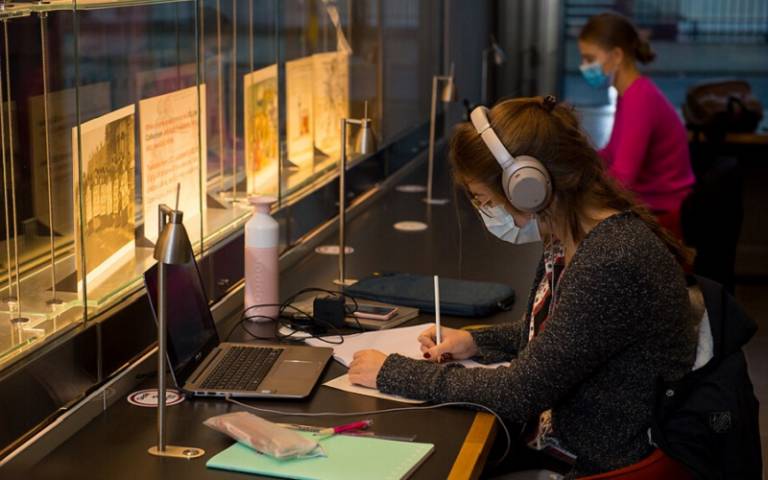Writing your dissertation: top tips from someone who’s been there, done that!
10 February 2021
Anthony Walker-Cook, UCL English Literature PhD student and Senior Postgraduate Teaching Assistant with UCL's Writing Lab, shares top tips he wishes he'd known before starting his dissertation.

So, you’re coming towards the end of your degree and there’s always one project that looms large in your mind: the dissertation! This behemoth might feel threatening but I want to assure you that, with proper planning, this project can be at least manageable and at best (whisper it!) enjoyable.
1. Let’s start at the beginning: picking your topic
Coming up with an idea for a dissertation can itself be a challenge. Think about what modules you’ve really enjoyed from your degree and spend time talking with the academics that led those modules. Were there any questions that you had from a course that were left unanswered? Use those questions and ideas to guide your potential dissertation topic. The most important thing is that you pick a topic that genuinely interests you: you’re going to be spending a significant amount of time on it!
2. Be flexible and allow your project to change as needed
My undergraduate dissertation started off as a study of the representation of dinosaurs in Victorian fiction, but I soon realised there weren't as many dinosaurs as I first thought (I guess you could say they were extinct). But from my research I realised that the contemporary interest in dinosaurs was part of a wider cultural shift that celebrated the emerging concept of the museum. My project thus become an exploration of museums in Victorian fiction, with a chapter on dinosaurs. You never know what direction your research will take you, so be open to change.
3. Once you’ve picked your topic, spend time on the Library site researching widely in your field
There are two vital points to make at this stage of the process:
Firstly, keep good notes when reading, especially with all the information needed to do your referencing down the line. The last thing you want to be doing when writing is spending hours trying to track down the reference!
Secondly, try not to lose sight of your specific question or topic. You’ll be doing a lot of background reading and you’re intellectually going to be tempted to go down research rabbit holes. Keep your own topic at the forefront of your mind whilst you research.
4. Don’t let the word count overwhelm you – it disappears quickly
Now, I know the inflated word counts of dissertations can be intimidating. 12,000, 15,000 or even 20,000 words is a far cry from the 2,000 word formatives you completed during your first year! But, once you start dividing the material into chapters that word count will soon disappear. Four or five chapters, an introduction and a conclusion will soon take you up to your limit; suddenly that mountain of words feels manageable. Careful planning will make the project seem not only achievable but also it will help guide and focus your reading. Spending time on a chapter plan early on can really pay off in the long run.
5. Plan in enough time for editing
It’s important to give yourself sufficient writing and editing time. I’d say the latter is almost more important than the former: this is a big piece of work and it will take time to go through it in detail. Ensure you submit sections of your work to your supervisor depending on what your department allows you to submit and act upon their feedback.
6. Have all the guidelines at your fingertips
As you are working, have a copy of your departmental referencing guidelines printed off in front of you and make sure you reference as you go along. Taking time to get the presentation of your thesis to a high standard reflects the significance of the project. Also make sure you firmly understand the project’s regulations, such as deadlines and word counts (double check if footnotes, figures or images contribute towards the final number of words).
7. Lastly, and perhaps the most important tip, try to enjoy your dissertation.
This is an opportunity for you to both use all of the skills you’ve acquired throughout your degree and for you to engage in an area of work that (should) genuinely interest you. Good luck!
Further information
Practical resources from the Academic Communication Centre
UCL Library support for dissertations and research projects
Anthony Walker-Cook, UCL English Literature PhD student and Senior Postgraduate Teaching Assistant
 Close
Close

